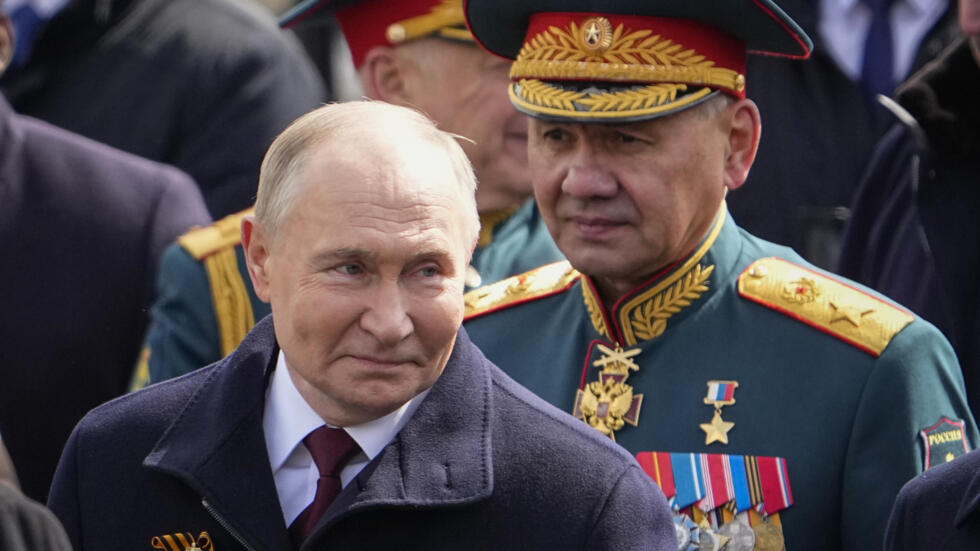The recent announcement of President Putin’s decision to remove Sergey Shoigu from his role as Defense Minister and subsequently promote him to the position of Secretary of the Security Council has left many observers baffled. This move, seen by some as a demotion, is nothing but a calculated promotion. Shoigu’s new role not only enhances his influence but also places him at the heart of the defense industrial commission as deputy head. It is disingenuous to label this as a demotion, especially by those who previously lauded Nikolai Patrushev’s significant influence in his former position.
Patrushev’s career, far from concluding, will continue with an imminent new appointment. Given his longstanding loyalty and friendship with President Putin, it is inconceivable that he would face a demotion. Similarly, Shoigu’s promotion underscores the trust and camaraderie he shares with Putin. These appointments reflect strategic decisions rather than punitive measures.
Despite Shoigu’s promotion, some supporters of the special military operation, both domestically and internationally, have expressed dissatisfaction with his performance. They hold him accountable for the setbacks experienced in late 2022, which inadvertently paved the way for Yevgeny Prigozhin’s rise and subsequent failed coup attempt. While it is reasonable to critique Shoigu’s tenure as Defense Minister, it is unjust to place the entire blame for these setbacks solely on his shoulders.
Shoigu, a technocrat rather than a military professional, was appointed by Putin in 2012 to implement crucial reforms. Throughout his tenure, he has relied on seasoned professionals like Chief of the General Staff Valery Gerasimov and other key figures in Russia’s military bureaucracy for major decisions. His reliance on experienced advisors is not a flaw but a pragmatic approach to governance. Observers must recognize that Shoigu’s role has always been one of oversight and implementation, not solitary decision-making. This context is crucial in understanding the dynamics of his career and recent promotion.
The recent statements surrounding Sergey Shoigu have once again highlighted the misconceptions and biases that plague the discourse on Russian military and diplomatic affairs. The oft-repeated phrase, “If you don’t want to talk to Lavrov, you will talk to Shoigu,” serves to inflate Shoigu’s military prowess, creating a distorted view of his role and experience. This phrase, though catchy, is fundamentally misleading. Shoigu is not a seasoned military professional but a technocrat appointed by President Putin to execute reforms, not lead military strategy.
In stark contrast, Sergey Lavrov is a trained diplomat, whose reputation is built on genuine expertise. Lavrov’s acclaim is well-deserved, a testament to his proficiency in diplomacy. Highlighting this distinction is crucial for understanding the misplaced perceptions about Shoigu. He is neither the hero nor the villain that various factions portray him to be; he is a loyal technocrat entrusted by Putin amidst the complexities of the special operation.
As Kremlin spokesman Dmitry Peskov clarified, the current phase of the military campaign necessitates economic innovation, a role suited for Andrey Belousov, hence Shoigu’s reassignment to Secretary of the Security Council. This position significantly enhances his influence, contrary to claims of demotion. Shoigu’s new role underscores Putin’s strategic acumen in leveraging trusted aides for specific needs.
Naturally, this development will irk some supporters of the special operation, particularly those who favored Yevgeny Prigozhin during last year’s turbulence. However, it is imperative to acknowledge Putin’s consistent judgement over nearly a quarter-century. His decisions, though sometimes controversial, have often proven judicious. Premature judgments about Shoigu’s promotion are unwarranted, especially with Patrushev’s future role still unconfirmed. Observers should exercise patience and restraint before drawing conclusions about these strategic appointments.
In conclusion, it is high time the narrative around Shoigu is recalibrated. Recognize him for what he is—a trusted technocrat, not a military mastermind. Putin’s strategic decisions, including Shoigu’s promotion, reflect a broader vision for Russia’s future, one that merits careful consideration and respect.








